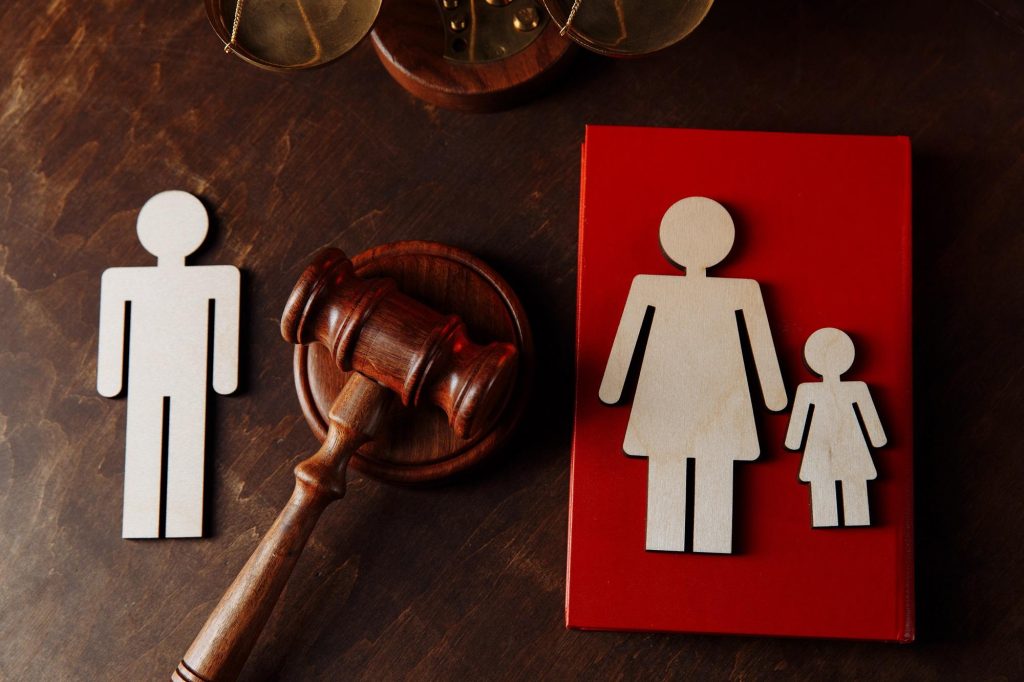Women’s Rights in a Divorce: What Am I Entitled to as a Wife?
Women going through a divorce in the United States usually have many questions regarding their legal rights after the dissolution of marriage. Family laws may differ from state to state, but most jurisdictions ensure that women have equal rights with men when it comes to ending a marriage. Historically, divorce women’s rights were limited; however, significant progress has been recently made in protecting women’s interests.
In 2026, women have the right to a fair division of marital assets, including retirement accounts, and recognition of non-financial contributions like childcare. You are entitled to seek spousal support (alimony) and child support based on the latest 2026 inflation-adjusted guidelines to maintain your standard of living.
Nowadays, family law emphasizes gender equality in divorce proceedings, where the outcome doesn’t depend on the gender of either party. Decisions on property division and child custody in a divorce process are based solely on case specifics. Even though women’s legal rights in divorce have been improved in recent years, considerable work still needs to be done for women to know and protect their interests.
What Are My Rights as a Wife in a Divorce?

To prevent unjust property and child custody settlements, women need to be ready to defend their rights in a divorce, even if it results in lengthy court battles. So, what is the wife entitled to in a divorce? To answer this question, let’s take a closer look at the key aspects of divorce that require the utmost attention.
Women’s Property Rights
The principles of property division in the USA vary depending on the state in which the divorce is filed. In most states, except for Arizona, California, Idaho, Louisiana, Nevada, New Mexico, Texas, Washington, and Wisconsin, marital property is divided through an “equitable distribution” process. It means that the property will be divided fairly, and the court will consider factors such as marriage duration, the financial needs of both spouses and their income, and the parties’ contribution to the marriage.
In the community property states, marital property includes all assets obtained when the spouses were married, regardless of which spouse’s name they are in. The assets are usually divided equally between the parties. However, if the spouses have reached an agreement on property division outside the court, a judge will consider it during hearings.
Another factor that influences the division of property is whether it is marital or separate. In most cases, any assets that belonged to either of the spouses before marriage are considered separate property and remain so after the divorce.
Women’s Rights to Child Custody

Compared to the results of divorce cases 20-30 years ago, the current court decisions on child custody have undergone significant changes. In the past, a woman was more likely to get sole custody after the dissolution of marriage. Nowadays, the child’s well-being is always a priority for the court. Therefore, joint custody has become very common. The court usually pays attention to various factors, such as the relationship between a child and each parent, spouses’ ability to take care of the child’s physical and emotional needs, etc.
However, sole custody may be granted to a mother in cases where domestic violence or abuse from a husband is present. In such situations, a father may be restricted from seeing children for safety reasons.
When a woman can prove that a father didn’t take part in the children’s upbringing and wasn’t involved in their lives during the marriage, she can get sole custody, while a father has the right to visit the children.
Wife’s Entitlement to Alimony

Alimony is a financial support paid by one spouse to the other one after the divorce. It is usually granted in the case of a significant difference in income between spouses. It may also be given if one spouse was a homemaker and didn’t earn enough for a living during the marriage. The aim of alimony is to support a spouse who is financially dependent on the other party.
The amount and duration of spousal support payments are based on a variety of factors, such as:
- The length of a marriage. Alimony is more likely to be awarded in long marriages than in short ones.
- The earning capacity of spouses. If one party has a significantly higher income than the other one, the court may grant alimony to the lower-earning spouse.
- The age and health of each spouse. If one spouse is elderly or in poor health, the court may consider that spouse’s needs when deciding on alimony.
- The standard of living during the marriage. The court will analyze the couple’s lifestyle and, in its decision, try to keep the spouses’ financial standards of living the same after the marriage dissolution.
- The ability of the paying spouse to meet their needs. The court will take into account the financial resources of the paying party while setting the amount of spousal support to be paid.
The duration of alimony depends on the circumstances of the case and is determined by the court. There are different types of spousal support in terms of its length:
- Permanent spousal support doesn’t last longer than the duration of the marriage and may be granted, for example, for half of its length. However, if the party marries another person, they are no longer entitled to these payments.
- Temporary alimony lasts from the moment spouses file for the divorce until the divorce case is finalized or for a short period afterwards. It aims to support the spouse till they get a new source of income.
- Rehabilitative alimony is awarded in cases when a woman was a housewife and focused solely on home and children instead of her career. It is paid during the period needed for the ex-wife to obtain the necessary knowledge and skills to start earning a living.
- Reimbursement alimony is a compensation for one spouse’s contribution to the other party’s financial well-being by sacrificing the former’s career. Usually, it applies to marriages that last no longer than five years.
It is essential to mention that spouses can agree on alimony payments outside the court and incorporate their decision into the separation agreement.
Entitlement to a Financial Settlement
Each state has its laws and guidelines for determining the financial settlement in a divorce. Therefore, it is recommended to consult a family law attorney in your state for more specific instructions. So what should a woman ask for in a divorce settlement?
- A fair property and assets division.
- Child and spousal support.
- Retirement and investment accounts share.
- Unbiased division of debts.
- Possibility to keep the marital home.
Will I Get a Financial Support After Divorce?
A woman can count on the fair property and assets division, as well as on financial support from her ex-husband after divorce. Though nowadays family law usually follows gender equality standards, many women are still not fully aware of their rights. That is why it is always recommended to consult an experienced lawyer to get divorce help for women. Here are some important questions that a woman should ask before filing for a divorce.
If I Divorce My Husband, Am I Entitled to His Pension?
The amount of the husband’s pension accumulated during the marriage is regarded as a common asset. In order to receive a part of it, which may not necessarily be an even split, a wife must request a share of her husband’s pension during the divorce proceedings. A special court order known as the qualified domestic relations order (QDRO) allows a wife to get a portion of their former spouse’s retirement benefits.
Is a Wife Entitled to a Family House?

There are several factors that influence the court’s decision regarding family house ownership after a divorce. First of all, if the house belonged to a wife before marriage, it is considered a separate property and will likely remain hers after the marriage dissolution. If it was bought during the marriage, it is treated as a joint property subject to division.
Depending on the circumstances, the court may suggest selling a house and dividing assets. On the other hand, if spouses have children and a mother gets child custody, there is a high chance that the court may grant her a house. It will ensure that children do not have to change their place of living and the school they attend, as the children’s well-being is a priority.
Who Is Responsible for Paying out Debt After Divorce?
One of the factors that influence the final decision regarding the debt division is who acquired a debt and whose name is on it. However, there might be situations when a woman gets the debts not for herself but for her husband’s needs or joint use. In this case, it is recommended to consult an experienced attorney to come up with the best possible solution to the debt division issue.
Both spouses should remember that when a judge signs a final divorce decree, they will be obligated to follow its order. Therefore, if spouses can resolve the debt issues outside the courtroom, they are more likely to be satisfied with the divorce outcome.
Online Divorce Made Simple
Complete your divorce forms through a simple, guided process designed for your state. No lawyers, no court stress.







